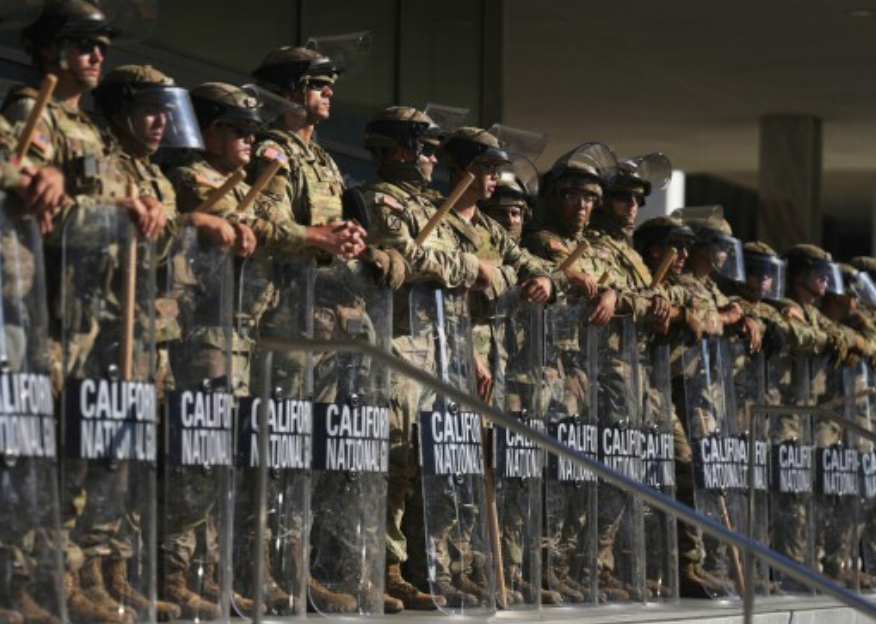A federal judge has ruled that Donald Trump’s deployment of the National Guard to Los Angeles this summer was illegal, a striking rebuke of the former president’s efforts to use military power as a domestic police force. In a 52-page decision, Judge Charles Breyer found that Trump violated the Posse Comitatus Act, the 19th-century law that bars the armed forces from enforcing civilian law in U.S. cities.
The ruling follows a lawsuit filed by Governor Gavin Newsom and Attorney General Rob Bonta after Trump sent more than 4,000 National Guard soldiers and 700 U.S. Marines into Los Angeles in June in response to protests against federal immigration raids. California officials argued that state and local law enforcement were capable of handling the demonstrations without military intervention. Breyer agreed, writing that while there were protests and even some violence, “there was no rebellion, nor was civilian law enforcement unable to respond.”
Evidence presented in court showed that Guard members conducted patrols, set up armed perimeters, blocked traffic, and even apprehended at least one protester. They joined federal immigration agents on roughly three-quarters of their missions in Los Angeles during the deployment. Breyer ruled that activities including crowd control, riot control, traffic stops, evidence collection fall squarely into the category of law enforcement, and thus into the zone that the Posse Comitatus Act forbids. He called the violations willful, noting that the Department of Defense’s own training materials list these functions as prohibited.
The decision prevents the Trump administration from using troops in California for arrests, searches, seizures, interrogations, or patrols unless specific legal exceptions are met. But the order is on hold until September 12, giving the Justice Department time to appeal. White House spokeswoman Anna Kelly blasted Breyer as “a rogue judge” and insisted that the president had full authority to protect American cities. Trump himself vowed to press on, suggesting he might send troops back into Los Angeles and promising reporters, “We’re going in” to Chicago next. He even claimed the 2028 Olympics in Los Angeles would have been cancelled without his military intervention.
For California leaders, the case is about more than one city’s protests. Newsom said the ruling showed that “the court sided with democracy and the Constitution.” Bonta called it an affirmation that the United States is not ruled by a king, but by laws that keep the military out of civilian life. Both men stressed that Guard members are needed for disaster response—wildfires, floods, earthquakes—not for immigration sweeps or street patrols.
The stakes extend well beyond California. Trump has already deployed troops in Washington, D.C., and threatened to send them into Oakland, Chicago, and New York. Breyer warned that Trump and Defense Secretary Pete Hegseth’s actions risked “creating a national police force with the president as its chief.” His ruling applies only in California, but it sets the stage for broader legal battles over the limits of presidential power.

